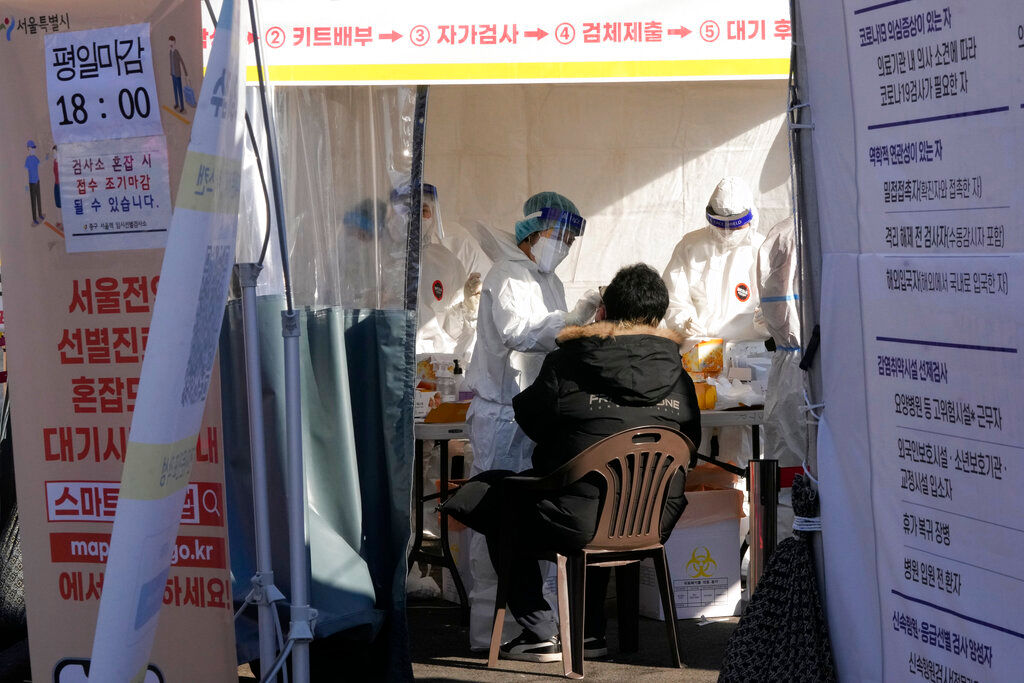South Korea on Sunday hit a new record of daily new COVID-19 infections, surpassing one million cumulative COVID-19 cases since the pandemic began in 2020.
The East Asian country reported a record 38,691 new infections on Sunday, and health officials have said that the surge in new cases is being driven by the highly transmissible omicron variant of the coronavirus.
Indeed, South Korea is experiencing a marked increase in COVID-19 cases, and the case count has increased five-fold in comparison to the tally two weeks earlier.
Also read | India reports dip in fresh COVID-19 cases, positivity rate drops to 7.4%
Although omicron cases are rising and the variant is beginning to dominate new infections, serious cases of COVID-19 infections have not risen proportionately, thereby sparing the healthcare system from getting overwhelmed.
In view of the recent surge in COVID-19 cases, health officials on Friday announced that social distancing measures in the country would be extended for another two weeks at the very least. A 9pm curfew on businesses has also been imposed and private gatherings have been limited to six people.
South Korea, which recorded its first coronavirus infection on January 20, 2020, became the first country outside China to face a major outbreak during the initial stages of the pandemic.
Also read | North Korea stole $400 million from crypto exchanges for missile tests in 2021
Till date, South Korea has reported a total of 1,009,688 COVID-19 cases. However, the East Asian country has handled the pandemic relatively well thanks to its robust healthcare system, which is among the best in the world. As a result, deaths from COVID-19 in South Korea have not even hit 10,000, and stood at 6,873 at the time of writing.
The East Asian country has also swiftly vaccinated large swathes of its population, and 86% of South Korea’s 52 million people have been vaccinated. Further, 54.5% have also received their booster doses as authorities ramp up vaccination efforts in a bid to contain the recent surge in new cases.







